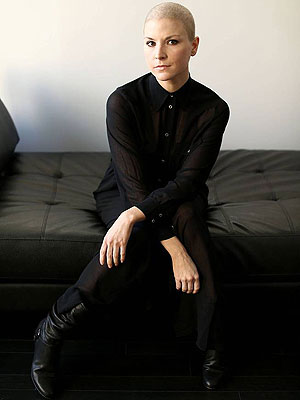WASHINGTON (AP) — Most candy, high-calorie drinks and greasy meals could soon be on a food blacklist in the nation's schools.
For the first time, the government is proposing broad new standards to make sure all foods sold in schools are more healthful.
Under the new rules the Agriculture Department proposed Friday, foods like fatty chips, snack cakes, nachos and mozzarella sticks would be taken out of lunch lines and vending machines. In their place would be foods like baked chips, trail mix, diet sodas, lower-calorie sports drinks and low-fat hamburgers.
The rules, required under a child nutrition law passed by Congress in 2010, are part of the government's effort to combat childhood obesity. While many schools already have improved their lunch menus and vending machine choices, others still are selling high-fat, high-calorie foods.
Under the proposal, the Agriculture Department would set fat, calorie, sugar and sodium limits on almost all foods sold in schools. Current standards already regulate the nutritional content of school breakfasts and lunches that are subsidized by the federal government, but most lunchrooms also have "a la carte" lines that sell other foods. Food sold through vending machines and in other ways outside the lunchroom has never before been federally regulated.
"Parents and teachers work hard to instill healthy eating habits in our kids, and these efforts should be supported when kids walk through the schoolhouse door," Agriculture Secretary Tom Vilsack said.
Most snacks sold in school would have to have less than 200 calories. Elementary and middle schools could sell only water, low-fat milk or 100 percent fruit or vegetable juice. High schools could sell some sports drinks, diet sodas and iced teas, but the calories would be limited. Drinks would be limited to 12-ounce portions in middle schools and to 8-ounce portions in elementary schools.
The standards will cover vending machines, the "a la carte" lunch lines, snack bars and any other foods regularly sold around school. They would not apply to in-school fundraisers or bake sales, though states have the power to regulate them. The new guidelines also would not apply to after-school concessions at school games or theater events, goodies brought from home for classroom celebrations, or anything students bring for their own personal consumption.
The new rules are the latest in a long list of changes designed to make foods served in schools more healthful and accessible. Nutritional guidelines for the subsidized lunches were revised last year and put in place last fall. The 2010 child nutrition law also provided more money for schools to serve free and reduced-cost lunches and required more meals to be served to hungry kids.
Sen. Tom Harkin, D-Iowa, has been working for two decades to take junk foods out of schools. He calls the availability of unhealthful foods around campus a "loophole" that undermines the taxpayer money that helps pay for the healthier subsidized lunches.
"USDA's proposed nutrition standards are a critical step in closing that loophole and in ensuring that our schools are places that nurture not just the minds of American children but their bodies as well," Harkin said.
Last year's rules faced criticism from some conservatives, including some Republicans in Congress, who said the government shouldn't be telling kids what to eat. Mindful of that backlash, the Agriculture Department exempted in-school fundraisers from federal regulation and proposed different options for some parts of the rule, including the calorie limits for drinks in high schools, which would be limited to either 60 calories or 75 calories in a 12-ounce portion.
The department also has shown a willingness to work with schools to resolve complaints that some new requirements are hard to meet. Last year, for example, the government relaxed some limits on meats and grains in subsidized lunches after school nutritionists said they weren't working.
Schools, the food industry, interest groups and other critics or supporters of the new proposal will have 60 days to comment and suggest changes. A final rule could be in place as soon as the 2014 school year.
Margo Wootan, a nutrition lobbyist for the Center for Science in the Public Interest, said surveys by her organization show that most parents want changes in the lunchroom.
"Parents aren't going to have to worry that kids are using their lunch money to buy candy bars and a Gatorade instead of a healthy school lunch," she said.
The food industry has been onboard with many of the changes, and several companies worked with Congress on the child nutrition law two years ago. Major beverage companies have already agreed to take the most caloric sodas out of schools. But those same companies, including Coca-Cola and PepsiCo, also sell many of the non-soda options, like sports drinks, and have lobbied to keep them in vending machines.
A spokeswoman for the American Beverage Association, which represents the soda companies, says they already have greatly reduced the number of calories that kids are consuming at school by pulling out the high-calorie sodas.
___
Follow Mary Clare Jalonick on Twitter at http://twitter.com/mcjalonick











